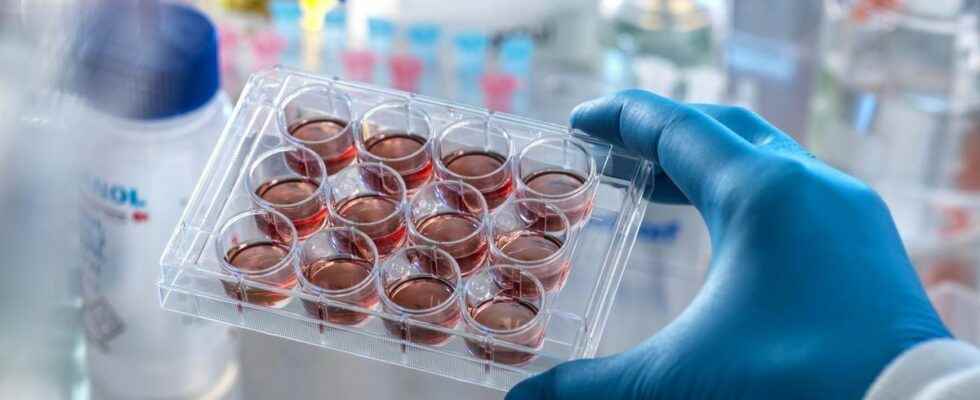Published on
Updated
Reading 2 mins.
Cambridge researchers transfused lab-grown red blood cells into several patients. A world first which offers new perspectives for many patients… but which will not replace the importance of blood donation tomorrow.
This is the first-ever clinical trial capable of transfusing lab-grown red blood cells into humans.
“Artificial” red blood cells grown in the laboratory
While the first two transfusions in volunteers have already been conclusive, scientists from the UK National Health Services and various universities do not intend to stop there.
At least 10 volunteers should soon be included in a phase I clinical trial, called Restore.
All will receive two mini-transfusions, spaced four months apart, of lab-grown blood cells (created from blood stem cells and fed with nutrients) and standard cells, both from the same donor.
“This challenging and exciting trial is a huge stepping stone for making blood from stem cells“, enthuses Ashley Toye, professor of cell biology at the University of Bristol and director of the project.
Blood cells that could survive for a long time
Researchers now hope that cells grown in the laboratory last longer in the body than others. Cells grown in the laboratory are indeed “fresher” than red blood cells from a “classic” donation, which contains cells of different ages (with a lifespan of about 120 days).
“If our trial, the first of its kind in the world, is successful, it will mean that patients who currently need regular long-term blood transfusions will need fewer transfusions in the future, helping to transform their care.“, reveals the chief researcher Cedric Ghevaert, hematologist and professor of transfusion medicine at the University of Cambridge, in a press release.
Another advantage: it would reduce iron overload due to frequent blood transfusions, a consequence that can lead to serious complications.
Real hope for certain disorders like sickle cell disease
If these blood cells prove to be safe and effective, the engineered blood cells could eventually revolutionize treatments for people with blood disorders such as sickle cell disease with rare blood types. It can be difficult to find enough well-matched blood donations for some people with these disorders.
Dr Farrukh Shah, Medical Director of Transfusion for NHS Blood and Transplant, said: “Patients who need regular or intermittent blood transfusions may develop antibodies against minor blood groups, making it more difficult to find blood. donor that can be transfused without the risk of a life-threatening reaction”.
Blood donation will remain crucial
The researchers state this in their press release:The need for normal blood donations to provide the vast majority of blood transfusions will remain. But the potential of this work to benefit hard-to-transfuse patients is huge.“.
